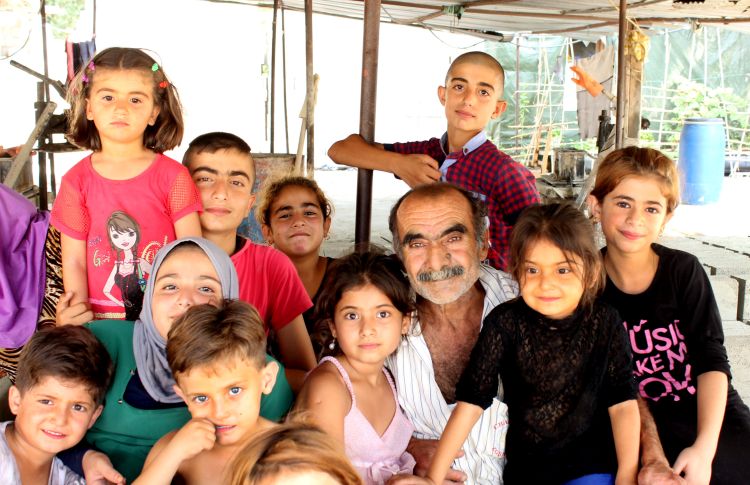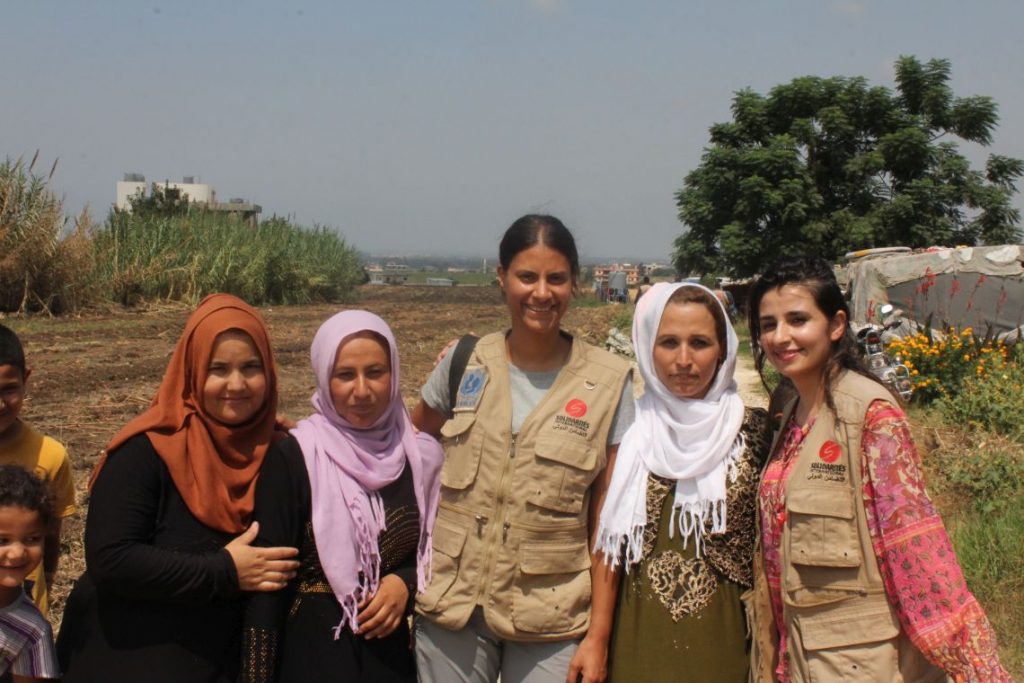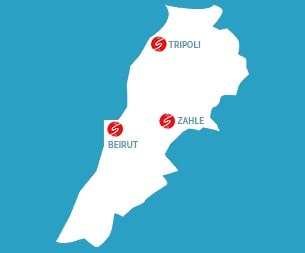Since the beginning of the Syrian crisis, Lebanon hosts more than 1.5 million refugees which accounts for one quarter of the population in the country (5.5 million people). The refugees are deprived of their basic rights and live in makeshift housing. Nevertheless children want to fulfil their dreams and their destitute parents do everything they possibly can to allow them to do so.
From Tripoli to the Bekka valley, Binetou Diallo, fundraising officer, went to meet the refugees and to collect their testimonies.
“I want to be a teacher”
I first stop in Zgharta, near Tripoli. We are in a cement factory. The refugees built their shelters there and now pay rent to the factory owner. The makeshift shelters are not isolated. The tin roofing protects them neither from summer heat nor from the cold of winter. When I arrive, children are playing in the shade of the courtyard. If at first they seem shy and do not dare to answer my questions, I only need a few seconds to get the conversation flowing. Their heads are full of dreams. Sham, 4, wants to go back to Syria even if she was born in Lebanon. Syria is her country. When they grow up, Ghada and Jamil would like to teach. Maria would like to be a make-up artist. Mutaz, 5, wants to be a doctor. All of them started to learn French in Syria and hope to continue in Lebanon. These children have dreams, ambitions, but their future is jeopardized by the critical situation they are in. They are forced to live day by day.

The right to education is violated
Halba 004 camp is located in the Akkar region, the poorest of Lebanon. Like in Tripoli, shelters are made with tarpaulin, tin and wooden boards. Summers make you swelter and winters make you shiver.
This is where I met Beja, with whom I spent a delicious moment despite the language barrier. She and her sister Najah gave me some tasty tea:
“When we arrived five years ago we had no electricity. We were using candles. Our home caught fire and I was severely injured. Today we and the kids have to live with my parents-in-law. We are desperately waiting for a kit to build our own shelter.
I send the children to school every day and they love it. My husband does not always find work, and we have debts due to medical fees. The refugees who can send their children to school are those who are the most in debt and who sacrifice their own health. I hear the poor school system is forcing a lot to drop out.”
Beja asked me to take a picture with her. In another life we could have been friends. She may be a refugee, but first and foremost she is a woman my age.

Beja asked me to take a picture with her. In another life we could have been friends. She may be a refugee, but first and foremost she is a woman my age,” Binetou Diallo (centre of the picture).
The struggle is no longer about learning but about staying alive
Camp Terbul 108 is in the Bekka Valley, northeast of Lebanon. We are really close to Syria. In this camp, refugees are settled alongside huge heaps of garbage. Here I meet Maha, 23. She is the mother of two young boys: Khalid and Omar. She tells me about their migration: “My husband died in Syria. I left Homs with my two boys and we walked two days to reach Terbul. For a whole week we had to eat grass we boiled with the little water we were able to find. Undernourished and dehydrated, the children vanished a few times. When we first arrived I received food stamps but not anymore. The cleaning jobs I find for $6 a day do not allow me to fulfil our needs, nor to send the boys to school. Sometimes I think about doing illegal stuff”.

Most refugee children are denied access to education and live in illness, destitution and distress. I was impressed by the strength and the joy of the people I met, whether young or old. Despite unacceptable living conditions, they stand tall and keep hope for a better future. I was impressed by the relationship between the refugees and SOLIDARITÉS INTERNATIONAL teams. Before being able to provide them with humanitarian aid, you need to earn their trust and respect.
Lebanon
Context and action- 5.6 million inhabitants
- 112th out of 191 countries on the Human Development Index
- 122.148 people helped

